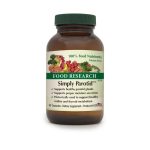
The TRUTH About GLANDULARS In Nutritional Supplements


Some natural health products contain glandular ingredients and many doctors have used glandulars for years with great success. Glandular organs, such as heart, aorta, and liver, have been a food source in the human diet for centuries. The consumption of glandulars is believed to provide nutritional support to the corresponding gland in the human body. Glandular organs contain food vitamins and minerals and were often used in the past to supply various nutrients.
Glandulars also contain nutritional peptides, enzymes, and substances believed to be hormone precursors. However, it is unclear precisely how these substances may affect energy levels, health, and/or mental function. Glandular therapy has alternative names such as: organotherapy, cell therapy where extracts are injected; and live cell therapy which normally uses extracts orally or intravenously.
Unlike plants, fauna have most of the same biological materials (like enzymes and other peptides) that humans do [1]. While it was once believed that there were 7,000-9,000 enzymes in the human body, it is now believed that there are as many as 75,000 [2].
Consuming glandulars helps directly supply enzymes. Enzymes are biological catalysts that encourage metabolic, catabolic, and digestive processes in the body. They help rebuild and detoxify. Enzymes tend to be specific, such as eye enzymes tend to help the eyes, but are ignored in the ear. Enzymes help the respective organs they are involved with function better.
Vastly more of the enzymes that humans use are in glandulars than in plants.
Adrenal glandular support is often used by people who are under stress, fatigued, having difficulty getting up in the morning, who have adrenal stress headaches, or have an abnormal craving for salts [3]. Adrenal tissue is normally taken with meals.
Brain glandulars contain “specific brain cell activators”[4] and have been advised for slowness of thought, loss of memory, uncontrolled mental activity, nightmares, mental retardation, and epilepsy [5,6]. A double-blind study involving bovine-brain derived phosphatidylserine found it was able to improve both behavior and cognition in elderly people with cognitive decline [7]. “…phosphatidylserine enhances the ability of enzymes in membranes of nerve cells to relay messages in and out of the cells. Research suggests that the glandular source phosphatidylserine is more effective than soy isolate sources [8].
Cardiovascular glandulars are normally made from bovine heart. This tissue is sometimes used by people with low blood pressure, overwhelming fatigue, people who need strength, people who feel cold, and athletes interested in improved performance. It is normally best not to take heart tissue late in the day (at breakfast and lunchtime is best for most people), as any heart glandular support product can affect sleep if taken late in the day [9]. Heart tissue, if appropriate, tends to show its benefits rather quickly (within a week or two for most people), though this varies. Heart tissue has historically also been used as an aid in glucose uptake and the manufacture of ATPs [6].
Ear glandular tissue, if available, is often taken for people with hearing concerns. If also taken with a form of moss, some report assistance with tinnitus.
Eye glandular tissue, if available, is often taken for eye and vision issues, including macular degeneration. It has been written that eye glandular extracts have been shown to improve “the general intregity of the eye tissue” and may be useful for eye strain as well as… “for failing vision associated with the aging process” [6].
The hypothalamus is the body’s master endochrine gland [10]. As such, it can effect basically all body systems and hormones. The hypothalamus also can increase feelings of tranquility [10].
Liver is probably the most widely used glandular supplements. The liver is the chemical factory of the body and feeding the liver can help when other approaches have not been effective. Historically, bovine liver has also been used for some enlarged livers, forms of anemia, and for support when chronic degenerative diseases are encountered [6]. Clinically, it seems helpful for many who have raised liver enzymes, especially if given with detoxifying herbs like silymarin, red beet, and garlic.
Bovine lung tissue has historically been used by those with respiratory disorders (such as bronchitis, asthma, chronic coughs, chest colds), convalescent stages (of pneumonia, colds, flu), and pulmonary involvements (including accidents, industrial fumes, dust inhalation, and even adrenal insufficiency) [11].
Some women take bovine mammary tissue. The breasts are involved in lactation, sexual attraction, and sexual response. Bovine mammary tissue has been sometimes advised for disorders related to female breasts such as nipple pain, lymph node enlargement, breast underdevelopment, mastitis, menstrual pain, nipple inflammation, congestion, and lactation difficulties [12]. It may be of interest to note that the National Cancer Institute has studied bovine mammary tissue to find out what may be in it that helps prevent cows from getting breast cancer.
Orchic is a word for testicle. Royal Lee claimed bovine orchic gland extracts could be indicated for those with nervous tension, lowered tolerance to stress, depression, loss of psychic tone, bruising on slight trauma, loss of appetite, skin lesions, adrenal insufficiency, nervousness, insecurity, mental aberrations, lack of feeling of well-being.
The ovaries are involved in female reproduction. Bovine ovarian tissue is sometimes advised to help some woman sleep at night, reduce the production of acne, improve mood, sometimes aid in menopausal issues, and for some women, increase fertility [13]. As it has effects that differ from thyroid support, it is often advised to take ovarian tissue before bed.
The pancreas is instrumental in the regulation of blood sugar and is one of the most important organs related to a healthy digestive system. The pancreas produces trypsin and is operational in intermediate protein metabolism [6]. Bovine pancreas is often used to assist in the digestion of grains and other foods.
Cytotrophic bovine spleen extracts have historically been taken by people with allergic reactions (hives, canker sores, cold blisters), lymph node swelling, blood concerns (anemia, lymphocytosis), demineralization accompanied by hyperirritability, as well as those with lowered resistance to infections and boils [14]. Some have suggested that bovine spleen “may aid in the elimination of allergic breakouts” [6].
Bovine thymus tissue is often used for immune system support. It is sometimes taken by people with staph, strep, and other bacterial concerns. Because it has few ingredients, it is useful to consider for those with other allergies, young children, and even pregnant women when they need immune system support. Bovine thymus has also been historically recommended when hyperglandular conditions, like hyperthyroid, hyperadrenal, etc., are encountered [15]. Oral supplementation with bovine thymus has been shown to be capable of enhancing T-lymphocyte activity, probably due to a thymosin-like activity [16].
Bovine thyroid tissue (note: bovine thyroid glands are thyroxine-free, thus do not result in a shutting down of the thyroid gland when taken). Thyroid tissue is used by people with symptoms associated with low thyroid such as afternoon tiredness, poor circulation, poor temperature tolerance, headaches, low metabolism, diminished female libido, weight concerns, and sometimes dry skin [17]. It is normally best not to take thyroid tissue late in the day (at breakfast and lunchtime is best for most people), as any thyroid support product can affect sleep if taken late in the day. Some people will find that their appetite will temporarily increase when taking it, but not only does this tend to normalize, it normalizes to the point that most people will find that they crave junk food, caffeine, and similar items less, but water, fruits, and even vegetables more.
Bovine uterus extracts have long been used for women with leucorrhea, uterine cysts, fibroids, uterine displacement, excessive or scanty mense, some types of sterility, menstruation cramps, prolapse uterus [6, 18]. Some practitioners have found uterine glandulars to be helpful for female moods. Some practitioners recommend uterine glandulars during the last month of pregnancy to provide nutritional support for the uterus in order to strengthen it to make it easier to push out a baby. Some also believe, that if continued after parturition, that supporting the uterus in this manner improves recovery by aiding the uterus, reducing its swollen condition. Furthermore, women have tended to report little or no postpartum depression if they began consuming uterine glandulars a few weeks before delivery through several weeks after delivery.
General Information on Glandulars
Glandulars contain nutritional peptides, enzymes, and substances believed to be hormone precursors. Although some believe that oral consumption of dried glandulars is no different than consuming any other protein-containing food, this belief appears to be based on the fact that the stomach breaks down proteins into their constituent amino acids and that there is no benefit from consuming foods containing specific peptides. However, this belief ignores the fact that some ingested protein is not broken down into its constituent amino acids.
Evidence suggests that with oral consumption of glandular extracts, a small percentage (5-10%) of their peptides are not broken down into their constituent amino acids but are available for intact absorption in the small intestine [19-22]. A small amount of these absorbed peptides then circulate and some of them appear to assist the human body (especially for ill persons) in performing various anabolic and catabolic processes [18-22]. Howell and others have reported that the amount of enzymes that pass through the stomach is even higher (nearly 50% [23]). Howell has also reported that individuals with significant health problems have been found to have lower levels of enzymes than healthy individuals and that oral enzyme supplementation has been helpful for many such people [22]. Although this position is not universally accepted [24], a study in the Journal of Surgery showed that oral pancreatic supplementation resulted in improved enzyme and growth levels for children who had a pancreaticoduodenectomy [25]. Research has suggested that bovine glandulars may be helpful for thyroid support [26], myoclonic seizures [27], and even CHARGE syndrome [28].
Some glandular extracts also contain small, safe amounts of hormones that may contribute to their possible effectiveness. The thymus gland contains thymic hormones which Schulof found may enhance immune response for people with HIV [14]. It should be noted that many substances contained within animal tissues are similar or identical to their human counterparts [1,29-31], including certain enzymes [29] and even T cell gene regions [30]. One advantage of glandulars over herbs is that raw ovine (sheep) and bovine (cow) glandulars often contain enzymes that are identical to those in the human body, while herbs rarely do.
Some research indicates that protein contained within cow’s milk appears to slow the growth of certain human toxic cells [28]; also cows do not appear to be that susceptible to getting breast cancer [32]. Thus it may be reasonable to conclude that other substances contained within or derived from bovine/ovine sources may be helpful for other human diseases.
Harrower, a pioneering researcher of oral glandulars, believed glandulars were effective because endocrine glands experienced something he referred to as “hormone hunger” [33]. Harrower wrote:
“The practical application of this idea concerns the administration of combinations of glands in presumed pluriglandular disturbances. If, for instance, in the conditions mentioned above there is a noticeable deficiency in several of the glands of internal secretion, the thyroid, ovaries and pituitary gland for instance, there may be varying degrees of hormone hunger on the part of the organs involved, and this will influence very definitely the amount of hormones that may be missing or needed by the glands to be stimulated.”
It should be noted that when Harrower used the term “hormone” this probably should be interpreted to also include nutrients, both known and unknown, including enzymes, peptides, and hormone precursors. Harrower referred to vitamins (then newly discovered) as “plant hormones” and he called hormones the “active principles obtained from certain glands” [33].
“There is a lot of controversy about the activity of glandulars given orally… It appears the effectiveness of glandulars comes in a multi-facteted way. These facets may be grouped into three basic categories: A. Hormonal; B. Enzymatic; C. Nutritive… Any gland given for therapeutic use should contain the whole nondenatured gland… The hormones are at the same strength as those found in the natural organ, except that the water has been removed leaving only the dried concentrated tissue. These hormones fall into various categories and forms:
Their hormonal factors can be broken down into two categories: A. Lipid soluble hormones; B. Water soluble amino bases and acids… The problem with steroid or prostaglandin therapy is that the medical sciences have removed them from the naturally occurring matrix which has a fine balance of steroids and prostaglandins. There is a natural law which applies in the universe and even more so in biochemistry. For every biochemical reaction or mechanism, there is an opposing ‘feedback’ mechanism. For this reason the balance must be maintained and taking glandulars are both therapeutic and very safe since this balance is maintained. It is only when the hormones are isolated and given in large doses that side effects take place, such as ulcers in steroid therapy or liver destruction in synthetic testosterone therapy. The second class of hormones is more diverse, but just as effective and important. These are the polypeptides and phyiogenic amines such as neurotransmitters and catecholamines… And the incredible thing about these peptides is that they become more active upon digestion. They are normally secreted in long chain proteins which are then broken down into endorphins which are then digested by specific proteases into the active hormones… Therefore, most of the protein is assimilated in peptide form not amino acid form. What this means is that glandulars can actually be activated by digestion” [34]. It should be noted that bovine thyroid does not itself contain substantial amounts of thyroxin which is why it is appropriate to feed the human thyroid gland. Many raw glandular preparations contain substances that can facilitate the conversion of various susbtrates into hormones.
Cooking destroys enzymes [23]. The primary difference between raw and desiccated glandulars is the enzyme content [34]. “1. Processing is very important in maintaining enzyme activity; 2. Digestion is required to activate enzymes and peptides… how are they absorbed? …they are absorbed through standard biological processes. Up to a third of your food is absorbed through the lymph system. This is basically an open portal system which permeates through the entire digestive tract allowing large molecules such as fat micelles, enzymes, and other molecules to pass into the blood stream. Other routes of absorption are active transport mechanisms such as chemotaxis… another route is immune-absorption where the protein or molecule combines with another protein and is carried in piggy back… The third category for glandular therapy is as a food… They are rich in protein and minerals and B-complex” [34]. It should be noted that when, for example, an adrenal enzyme reaches the toes basically nothing happens as the adrenal enzymes (as well as others) are specific to, in this case, the adrenal glands. Once reaching the adrenal glands, they help the adrenal glands through various anabolic and catabolic reactions.
Animal glands have been consumed since the beginning of history [35], and even now scientific studies involving them are being published [e.g. 36]. “Glandular products have been produced and used in the U.S. for over 60 years with absolutely no reports of microbial contamination or resultant illness” [36]. They are consumed in many countries, including the U.S. as food [35,38]; they may even contain substances to reverse diseases associated with Western diets [35]. Regarding glandulars, it has been reported that, “overdosing is not a concern. Even when excess amounts have been ingested, the body can easily deaminize them” [35]. A search of the literature found one report (in a letter to the editor) of a single, temporary complaint; the glandular raised thyroid hormones levels which normalized when consumption was discontinued, from using a thyroid glandular product combined with lithium, but the daily consumption (45 tablets) was in excess of any reasonable consumption (daily quantity of thyroid hormones present: 0.5mg T4 and .09mg of T3) [38].
No long-term, negative side effects from taking glandular supplements are known [37].
New Zealand and Argentine Glandulars
New Zealand and Argentinean farmers tend to raise their cows and sheep naturally more than those raised in places like the USA. The animals almost exclusively consume unfertilized natural grasses as are found in the pastures of those lands. Neither New Zealand nor Argentina has ever had a case of BSE (bovine spongiform encephalopathy) nor scrapie, a similar disease found in sheep [38-42].
Ovine, Bovine, and Goat
Many of the pioneering glandular researchers [42] prefer ruminant source (bovine {cow}, goat, or ovine {sheep}) glandulars to glandulars from other animals for many reasons:
Clinically, ovine, goat, and bovine glandulars are also preferable to porcine (pork) glandulars as followers of many religious faiths (Islam, Judaism, Seventh-day Adventists, and various Churches of God) will not consume pork, but will consume meat extracts from sheep, goats, or cows.
Bovine glands contain essentially nutrients such as protein, essentially fatty acids, calcium, iron, magnesium, phosphorus, potassium, and zinc [44,45]. Depending on the gland, they also can contain essential vitamins such as vitamin C, thiamin, riboflavin, vitamin B-3, vitamin B-6, folate, vitamin B-12, vitamin D, vitamin E, and vitamin K [44,45].
Freeze Drying vs. Desiccation
“Another term for freeze-drying is sublimation. It is the shifting of a solid directly into a gas. Freeze drying is a slow process that preserves nutrients, enzymes, and protein structures while making the food shelf stable, so it does not require refrigeration. Orijen explains their take on freeze-drying and the process that they use: ‘Freeze drying does not involve cooking, it requires only two stages: solid and vapor. This means that only the water is removed, so all of the flavour and nutrients remain locked inside. We start by flash-freezing our fresh ingredients to lock in their goodness. Then using extremely low temperatures (-50C) and special pressurized chambers, our 18 hour freeze-drying process converts the frozen water in our ingredients directly into vapor, without creating any liquid. That means H20, and ONLY H20 is removed, leaving all of the goodness in the food.’ Freeze-dried food is nutritionally equal to raw food, except for the lack of moisture [46].” It also results in a product that can be more finely ground to increase absorption.
Glandulars supplements can be made in several ways. The cheapest way is through desiccation, which essentially dries the glandular at high temperatures. The biggest problem with desiccation is that it destroys all the enzymes that are in the tissue. Desiccation may also destroy other active substances contained within the gland. Some companies use a salt-drying process, but this tends to result in glands with a high sodium content which can cause digestive complaints for adrenal-containing products. One of the most expensive ways to produce glandulars is through a non-heat, vacuum-drying process (“freeze-drying”). This low temperature process helps preserve many of the naturally-present enzymes. When looking for enzymatic activity, researchers have concluded that the “process of freeze drying resulted in a more complete drying and preserved more enzyme activity” [47].
“Freeze-dried foods have some high quality characteristic compared to products of alternative drying process … Drying removes the moisture from the food so bacteria, yeast and mold cannot grow and spoil the food, so can extend the shelf life. Drying also slows down the action of enzymes, but does not inactivate them. … The application of freeze-drying process to foods is most important appears to be for meats such as beef” [48]. “Freeze drying can best preserve meat original color, aroma, taste and nutrients. Freeze drying was conducted under the conditions of low temperature and high oxygen, thus microbes and enzymes have no effect on it, food is also not affected by oxidation, food color, aroma, taste and nutrition loss minimum, so especially suitable for drying food of extremely thermal and oxidation easily. Freeze-dried is not damaging protein in meat, fat soluble vitamins VA, VD, etc have no loss” [49]. “Freeze dried foods retain nearly 100% of the health benefits of the original food product. Active enzymes, nutrients, antioxidants, amino acids, and more remain “locked in”. When frozen, vital molecules remain in place and so the overall integrity of the nutritional composition remains intact. The freeze dried food is still considered a “raw food” that remains vibrant and alive in a dormant state just waiting for moisture to reactivate” [50].
Natural health doctors generally prefer non-heat drying methods to desiccation even though that does increase the cost of the product. Non-heat drying results in a glandular that is the closest to ‘whole food.’
Protomorphology and EnzoMorphoGens
Royal Lee often used a salt-drying process for glandulars. This may be why, although he advocated whole glands for acute problems, he tended to prefer more processed glandular extracts for long term consumption. While that was fine for his time, freeze-drying later became commercially available. In this author’s view, that made a generally superior glandular product for long term consumption.
Anyway, it appears to partially boost the efficacy of salt-dried glandulars, Royal Lee came up with a process to add back part of the gland and he referred to the end product as a protomorophogen.
Here is some of what he reported:
It is obvious that the ability of molecules to hang together and maintain a complex intricate structure must be limited. … Beatle (1946) … postulates … a hypothetical “protogene.” This “protegene” … is the “skeleton” of the living protein molecule, which we prefer to term “protomorophogen” … We propose to advance our hypothesis that further extensive development of the living protein depends on a “skeleton” to maintain its stable complicated forms. … The “skeleton” of the complicated protein molecule, the chromosomes of the higher organism … are specialized units whose primary responsibility is that of preserving the integrity of organization. …
The species specific qualities of protein can be identified only by their biological effect. … We suggest that the “skeleton” of the specific protein molecule has the unique function of creating and maintaining the specific character and form of the molecule. We speculate that the essential duty of this organizer is to act as an organizer. …
We define a protomorphogen as a comparatively stable but complex group of molecules linked together by chemical affinities of mineral material, which by reason of its physical and chemical structure determines the exact plan or pattern by which the component parts of a specific protein are combined. …
Protomorphogens, as found in living organisms, are virus-like nucleoprotein molecules … Being nucleoprotein in nature (in its functional state) … they are soluable in saline solution; …
Protomorphogen is, therefore, the initiating stimulates to formation of connective tissue in the organism. … thyroid activity is more complicated … [51].
Yes, specific biological effects are important. Dr. Lee’s protomorphogens were essentially a component of the whole animal gland extracted in a liquid form that were added to a base.
Of course, since not everyone is the same, some will do better with some modified glandulars or blends, while others will do better with whole glandular products.
As it turned out, it is this author’s understanding that, in time, Royal Lee’s original protomorphology extract process was replaced with a different process. In this author’s opinion, the later process was not an improvement consistent with some of Royal Lee’s writings.
However, a different company founded by people who once worked for Royal Lee also developed an enzymatic extraction process to boost certain biological effects of glands. The end result of this process produces glandulars that are known as enzyomorphogens (EMGs). For certain applications, this results in a superior product.
Clinically, most protomorphogen and enzyomorphogen extract-containing products have a similar effect. Also, clinically, for many glandular applications, whole freeze-dried glands have similar effects. This is logical as the whole gland does also contain whatever substance(s) that could possibly be extracted from it.
That being said, however, clinically this author has found that while many EMGs and whole freeze-dried glands can be interchanged, this is often NOT the case with thyroid glandulars. A whole thyroid glandular product tends to be “stronger” than an EMG-type product. Hence, not nearly as interchangeable.
Typically, when seeking a milder effect, this author will recommend an EMG-type product (particularly for elderly women). On the other hand, if a stronger effect is indicated (like, perhaps, in the case of someone who is severely obese), a whole thyroid glandular tends to be recommended (also, for about one week per month, whole thyroid glandular supplements tend to be better for women with PMS symptoms).
Anyway, everyone is different, and clinically what is best for one is not always best for another.
Why Aren’t They Used More?
In this age of COVID-19, there are multiple reports of long-term damage to lungs, kidneys, and other organs [52], glandulars of many types should be considered as something that people can do to help their bodies.
Sadly, most healthcare professionals do not realize that. Few have had much training on glandulars.
Since glandulars combined with herbs tend to work faster and sometimes better than herbs alone, why else aren’t glandulars used more?
Beyond lack of knowledge another reason is that, generally speaking, glandular ingredients cost more money than herbal ingredients. Many companies simply will not use them for that reason. Another reason is many people believe that plants are always the answer. And although for some problems they are, they are not always the best choice as plants almost never contain identical glandular enzymes.
Glandulars can help replenish enzymes, peptides, and other nutrients for the body in ways vegan supplements cannot.
Glandulars should be considered more by health care professionals.
References
[1] Hulsey MG, Martin, RJ. The role of animals in nutritional research. Nutr Today,1993;28 (5):1993neglected field? Cambridge Philosophical Society, Biological Reviews,1984;59: 289-331
[20] Popov I.M., et al. Cell therapy. J International Academy of Preventive Medicine,1977; 3:74-82[21] Burns D. Accumulating scientific evidence supports glandular therapy. The Digest of Chiropractic Economics, Nov/Dec 1987: 74-79[22] Schwartz EF. Glandular therapy. The American Chiropractor, January/February 1983:14-18[23] Howell E. Enzyme Nutrition. Avery Publishing Group: Wayne (New Jersey): 11-29, 1985[24] Green S. A critique of the rationale for cancer treatment with coffee enemas and diet. JAMA, 1992; 268 (22): 3224-3227[25] Shamberger RC, Hendron WH, Leictner AM. Long-term nutritional and metabolic consequences of pancreaticoduodenectomy in children. Surgery, 1994;115(3): 382-388[26] Thiel R., Fowkes S.W. Down syndrome and thyroid dysfunction: Should nutritional support be the first-line treatment? Medical Hypotheses, 2007; 69:809-815[27] Thiel R. Might disorders of calcium cause or contribute to myoclonic seizures? Medical Hypotheses, 2006; 66(5):969-974[28] Thiel R. Thiel R. CHARGE (Hall-Hittner) Syndrome and Nutrition: A novel case report, 2006[29] McCarren M. Animals in research: researchers use animals to learn more about human diabetes. Diabetes Forecast,1993; 46 (8): 26[30] California Institute of Technology. Large genome comparison reveals details of genomic evolution. Cancer Weekly Feb 10, 1992;6: 3[31] Bland J. Glandular Therapy. Circa 1989[32] Protein in cow’s milk slows growth of cancer cells in lab tests: Mammary derived growth inhibitor (Cornell University). Cancer Weekly April 20, 1992;12:2[33] Harrower H. Practical Organotherapy. 3rd ed. W.B. Conkey Co.: Hammond (Indiana): 31-36, 1921[34] Raw Glandular Therapy. ABCO Labs, Concord (CA), circa 1998[35] Dunbar R. Foraging for nature’s balanced diet. New Scientist August 31, 1991:25-28[36] Thiel R. Might disorders of calcium cause or contribute to myoclonic seizures? Med Hypo. 2006; 66(5):969-974[37] DeCava JA. Glandular supplements. Nutrition News and Views 1997; 1(3):1-10[38] Cooper N, Palmer B. Thyroid hormone in a health food capsule. New Zealand Medical Journal 1994: 231[39] JOINT STATEMENT FROM THE NEW ZEALAND FOOD SAFETY AUTHORITY AND MINISTRY OF AGRICULTURE AND FORESTRY. BSE in the US has no food safety impact in New Zealand or threat to our animal health status. 24 December 2003[40] New Zealand’s Scrapie Freedom. New Zealand Food Safety Authority. Nzfsa.gov 2/16/06[41] Scudel A.A, et al. Analysis of risk factos and active surveillance for BSE in Argentina. Siiap.sagyp.mecon.ar 02/16/06[42] Lee R, Hanson W. Protomorphology: The Principles of Cell Auto-Regulation. Lee Foundation for Nutritional Research, Milwaukee, 1947[43] Nuttall, Dr. Blood Immunity and Blood Relationships. Cambridge University Press, London, 1904Research, Milwaukee, 1947
[52] Moffit M. What they don’t tell you about surviving COVID-19. SFGate, June 22, 2020
Some of these studies (or citations) may not conform to peer review standards (though most do). Therefore, the results are not conclusive. Professionals can, and often do, come to different conclusions when reviewing scientific data. None of these statements have been reviewed by the FDA. All products distributed by Doctors” Research, Inc. are nutritional and are not intended for the treatment or prevention of any medical condition.
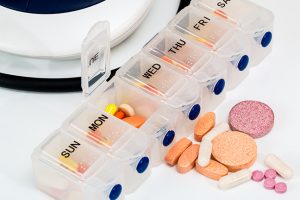
Adrenalin is an outstanding example of a synthetic product that is being commercialized in disregard of the difference in physiological action. The natural adrenalin is fifteen times as 35 active as the synthetic dextro form in its effect on blood vessels.
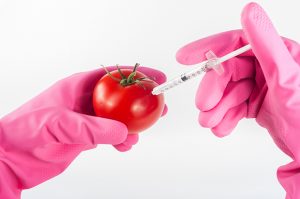
GMOs, or “genetically modified organisms,” are plants or animals that have been genetically engineered with DNA from bacteria, viruses or other plants and animals. These experimental combinations of genes from different species cannot occur in nature or in traditional crossbreeding.
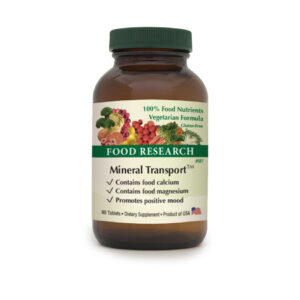
Product #587 Mineral Transport™ Mineral Transport™ is a formula that contains nutrients
100% vegetarian FOOD supplement that is the best multi-vitamin, multi-mineral product available anywhere. 240 Tablets – $106.98
100% vegetarian FOOD intended to help support a healthy balance of glucose in the body.
100% FOOD supplement that is intended to supply nutrients, glandulars, and herbs needed to maintain and support optimal thyroid health.
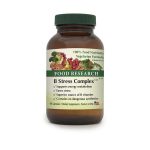
100% vegetarian FOOD supplement that is intended to supply 100% FOOD B vitamins.
This site provides information for doctors and health care professionals and is not intended for use by consumer.
• Photos and Images are all used by permission from Pixabay.com & Pexels.com except for those that are Owned and Copyrighted by Doctors Research, Inc.